|
Craft beer can be a little intimidating. With its enormous bottles and alcohol contents, litanies of new words and adjectives, and bold, unique flavours. It’s easy, too, to see the scenes which emerge around hyped new and sometimes surprisingly expensive products, and to attribute it to some sort of hipster conspiracy. But the craft beer movement is much less about savvy marketing and artificial economies than it is about passionate people falling in love with new techniques and great ingredients. At Caboose in Mt Lawley this May we got talking to Tim Matthews, the head brewer of Colorado’s Oskar Blues. Tim has an encyclopaedic knowledgable for near everything regarding beer brewing and boundless enthusiasm for his craft. I learned more about craft beer in half an hour speaking to Tim than I had anywhere else, so afterwards I was determined to keep he conversation going. We got back in touch with Tim to talk about the history and future of craft beer, and here’s what we found out: It all started with passion for great beer.Tim says that the craft beer movement has been tied with the boom in modern home brewing. “Craft beer has always been about a rebirth of having an intimacy with your beer, both from a brewer and consumer perspective.” Indeed, the emergence of a number of craft breweries in both the US and Australia have formed as the result of brewers honing their skills at home until they had the support and finesse to take their product to market on industrial equipment. Craft Beer is a product of the modern worldThe proliferation of information in a globalised world, along with advances in technology and trade, have been instrumental in sharing not only beer and beer ingredients, but the love of beer itself. Lovers of beer can find a place not only in the global community, but local communities around craft beer form more readily as information about beer has become easier to spread. Smaller breweries now have better access to premium ingredients, better distribution, and better techniques, which allows inspired people to put out more adventurous and exciting beers. One of the more noticeable trends in craft beer recently has been an adoption of canning. Oskar Blues have been producing craft beer in cans since 2002, and were the first craft brewery to do so. Here in Australia, adoption of cans has been slightly slower but the past year has seen Perth’s Feral brewery adopt a canning line, as well as breweries Modus Operandi and Pirate Life starting their trade exclusively in cans. Canned beer is easier to cool, less prone to oxygen or light spoilage, and more portable, but some of the biggest benefits to canning lines start at the breweries, where the unit price drop substantially, allowing more money to be invested back into the brewing. As well as lighter, more compact units meaning more beer can be transported, and complete recyclability making for a smaller environmental impact. The future of craft beer is in farmingTim visits Australia each year to check in on Hop producers, “Being from the States, I have access to an incredible array of flavors from hops, and a lot of our beers engage that flavour. Australian hop growers, however are producing incredibly unique hops; they’ve developed some of the most challenging, intense, and diverse flavors. We source a bunch of these to feature in our Oskar Blues IPA in order to add that color to our spectrum of beers.” Tim and many other new wave brewers have attuned themselves to terroir, a term initially used by winemakers to describe the impacts of place on a wine in regards to climate, weather, soil, region and even culture. Beer is essentially comprised of just four ingredients, Water, Barley, Hops, and Yeast, and each of these ingredients is heavily influenced by its terroir. "Hops are influenced by the day length in early summer and the temperature fluctuations in summer and fall. Barley is heavily influenced by the dirt from which it grows (although a maltster has a huge say in how it is expressed). Water is influenced by the source of the water and the extent of contact it has with the ground on which it flows, along with the content of that ground. And Yeast, still a mystery in many ways, has different species all over the world just floating in the air.” Says Tim. As the world becomes more connected, it is easier than ever to combine products from different places, but Tim argues that there are equally valid reasons for 'an isolated expression of terroir that features components all sourced and used with a small radius.’ In essence, the same way that an artist using artificial pigments in lieu of natural ones has a harder job as their palette is bound not by possibility but only by their own tastes, it will be interesting to see how modern brewers react as the question progressively stops being ‘can we?’ and starts to become ‘should we?’ Tim believes there is room for both mentalities: Keeping everything local, or balancing new and exotic ingredients. Reinheitsgebot is no longer synonymous with qualityWe mentioned that beer is essentially just four ingredients, but some brewers and beer drinkers believe there should never be more than these four ingredients in a beer. The ‘German purity law’ states that beer should comprise only of Water, Barley, Yeast and Hops. It is a 500 year old law in Germany and has served as a guideline for international brewers for almost as long. However, in light of better ingredients than ever before, modern brewing has trended away from the older practices which necessitated such a law. Flavours are now added not to mask bad ingredients or bad brewing, but to add complimentary flavours which couldn’t be achieved with just the four base ingredients. Says Tim: "The spirit of this “purity doctrine” comes out of the need to maintain a foundation since many times in history quality was not being met without it. There will always be interpretations on this but I’ve felt that beer is a fermented beverage from grain. Just like wine comes from grapes and Mead comes from honey. Beer is a base that can be “spiced” in various ways – hops, herbs, fruits, wood, and so forth.” For Tim, brewing will always be about Family and HospitalityEarlier when we spoke to Sam and Toby from Modus Coffee, they stressed the importance of community, connection and earnest hospitality, and for Tim these sentiments were no different. "Oskar Blues was built on family and hospitality,” he said, referring to a company which now comprises Oskar Blues Fooderies, Oskar Blues Soda Pop, Hotbox Roasters, REEB cycles, and the Can’d aid foundation. "We try to have just as eclectic a flavor as the crazy little group we’re part of by sourcing some unique foreign and local flavors and working side by side with the people that grow that flavour." Craft beer, already huge in the US, is growing bigger and bigger in Australia. It’s great to see breweries adopt new practices and beer drinkers opening up to new and exciting styles. Brewers and bartenders at places like Caboose are a wealth of knowledge, and usually more than happy to share. But the most important thing to remember is that craft beer is a movement of passionate people nerding out about a product that they love. Oskar Blues can be found in most stores and bars which specialise in craft beer. Caboose is where we met Tim, took the photos for this article, and drank the beer, it can be found off Beaufort Street, behind the Flying Scotsman.
0 Comments
|
Archives
March 2020
Categories |
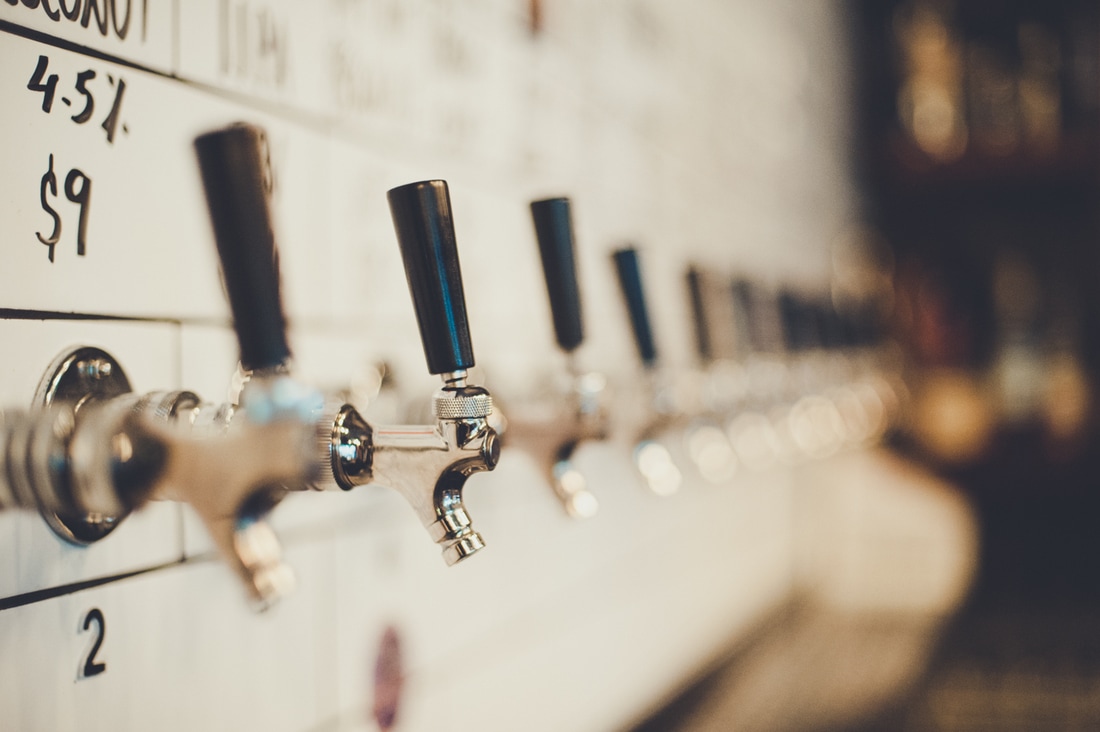
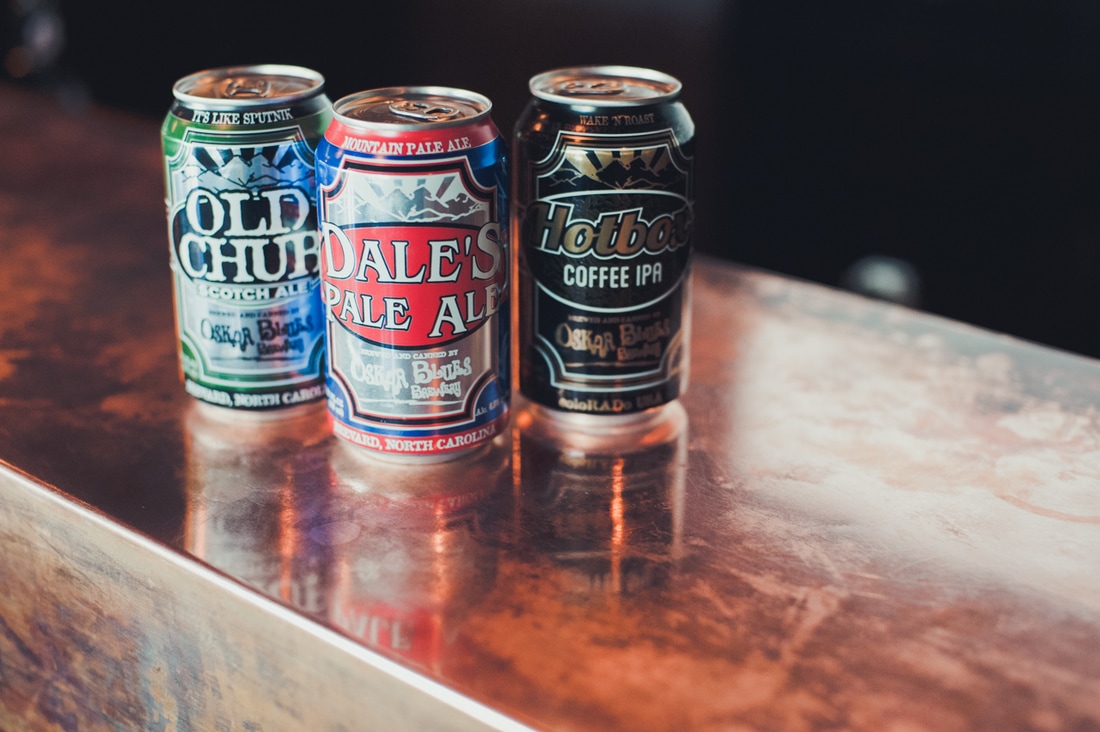
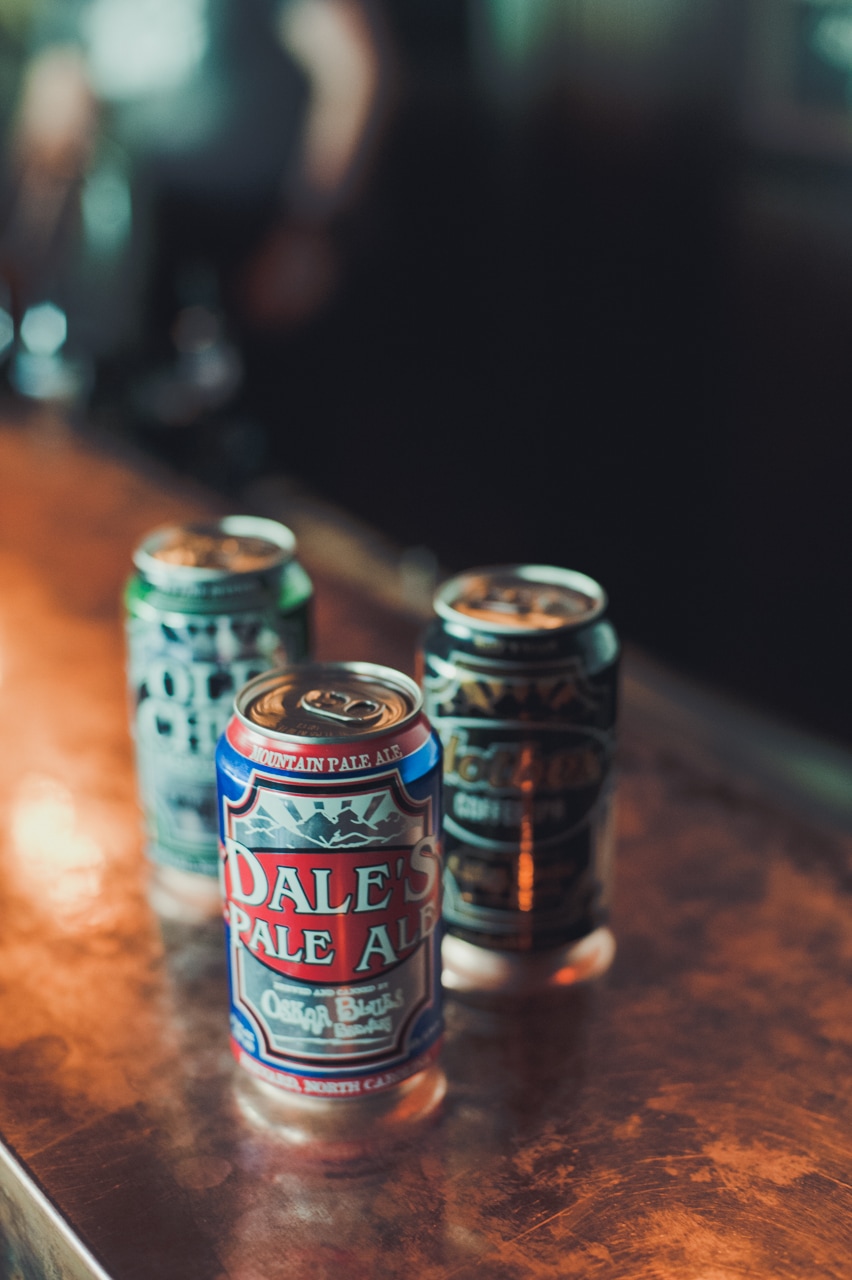
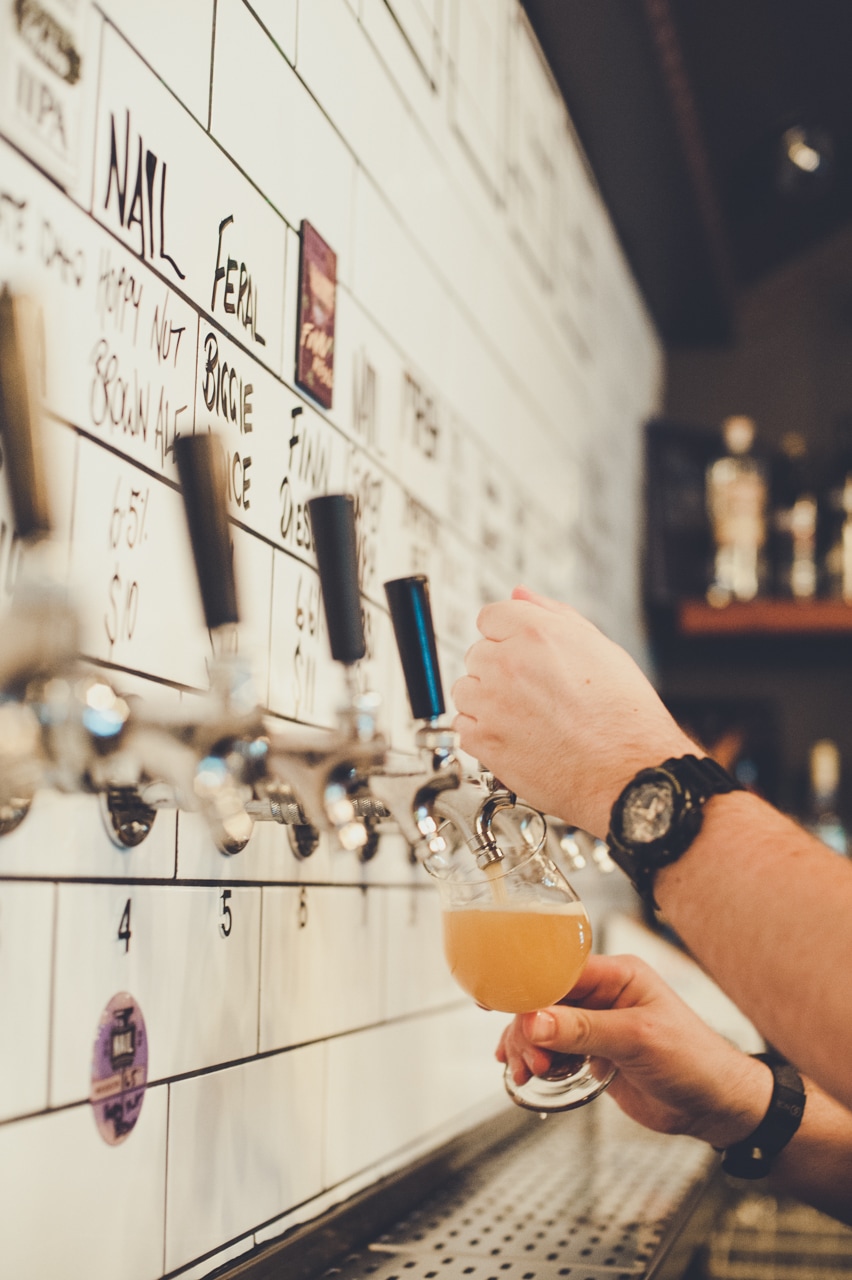
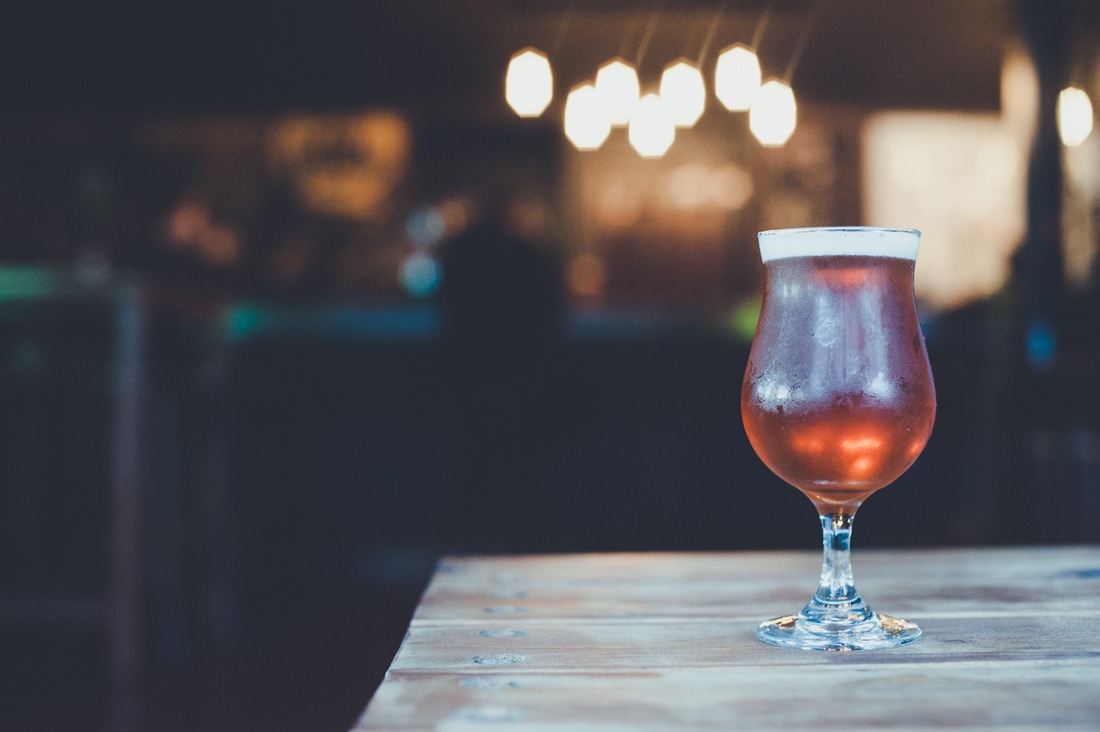
 RSS Feed
RSS Feed